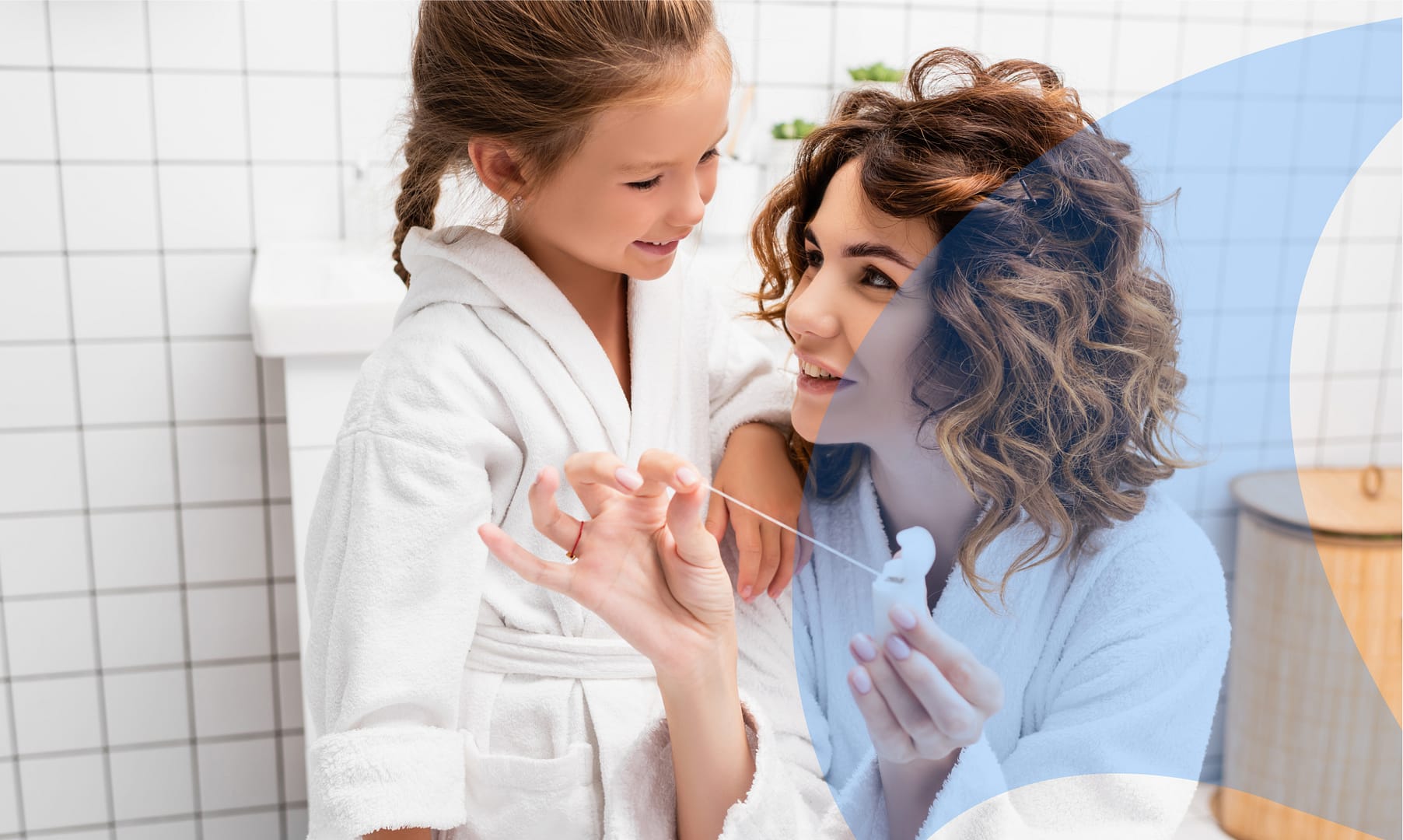Parents, You Can Support and Sustain Your Child’s Flossing Routine

Good habits matter.
It may have taken you longer than you expected to teach your child how to sit still long enough to brush their teeth. Well, now it’s time to incorporate flossing into that routine! Don’t panic, you’ve got this!
Parents play a critical role in their child’s habits and behaviors. Pretty scary thought, isn’t it? But it isn’t all that bad. They are watching everything you do, soaking in all of those habits like sponges. What you eat for dinner, how you do the dishes, and even how you brush your teeth.
Knowing that they are watching it all, it’s important to keep a positive attitude when it comes to your dental routine. You don’t want your children to think negatively about dental care, and sometimes how it is presented can make all the difference.
Why does flossing matter?
No matter how diligent we are with brushing, food particles are sneaky. They are known for hiding in those hard-to-reach places between the teeth, never to be found again. Unless you coax them out with a piece of floss, of course.
You’ve probably heard the term, “can’t teach an old dog new tricks.” That saying is true for a lot of things. If you don’t grow up with a good oral care routine, it can be much harder to train yourself to do it later.
When you establish a good flossing routine early on, it decreases the likelihood of cavities and gum disease. This doesn’t go for just childhood! Because the habit will be ingrained in your child, it can make a difference for their entire life.
When is the right time to start flossing with my child?
Flossing doesn’t have to wait until your child has a whole head full of teeth. You can start as soon as there are two next to each other. This is often around the age of two. Remember, it never hurts to start the routine early. The sooner you begin, the sooner your child will grow used to the process and start developing these good habits!
How do I teach my child to floss their teeth?
Remember that every child is different. Some might enjoy the extra attention as they learn to take care of their teeth. Others might act as though it’s the worst experience of their lives. Be patient! Start gradually, getting them used to the idea. Try not to stress too much. You’re trying to form a habit, and that can take time.
Lead by example. Always remember that they are watching your every move. If they are able to observe your oral care routine, they are more likely to do the same as they get older.
Don’t be afraid to make it fun. Floss your teeth at the same time every day, making funny faces the entire time. Then do theirs, challenging them to make the craziest face they can possibly make.
Get your hands on some fun flossers! There are some shaped like dinosaurs, giraffes, or even an assortment of different animals and colors. This will make each day a new experience as you let your child pick what animal they want. If they choose a lion, perhaps they can roar like a lion while brushing. If they pick a giraffe, challenge them to floss their teeth standing as tall as they can.
If traditional floss isn’t the way to go for your child, why not try a water flosser? They have smaller versions just for kids! This might make the experience just a little more fun, giving them a chance to both floss effectively and form that habit.
How do I get them to floss regularly?
It can be hard to get a child to do anything regularly. That’s why patience is so important. Establish that routine, brush and floss your teeth together, and make a big deal out of it! You might even consider using a rewards chart with fun stickers, or watch a tooth brushing and flossing song on YouTube. But don’t panic if one evening doesn’t go as planned. You’re in it to create a lifelong habit, after all. That takes time! Be patient, and encourage your children every step of the way!
Monkey see, monkey do.
When it comes to teaching our children good habits, like brushing or flossing their teeth, it’s important to model the behavior we want to see in them. We want them to see us caring for our own teeth, whether it’s brushing, flossing, or even visiting the dentist twice a year. They will be much more likely to copy us, setting them up for a lifetime of healthy, happy teeth.